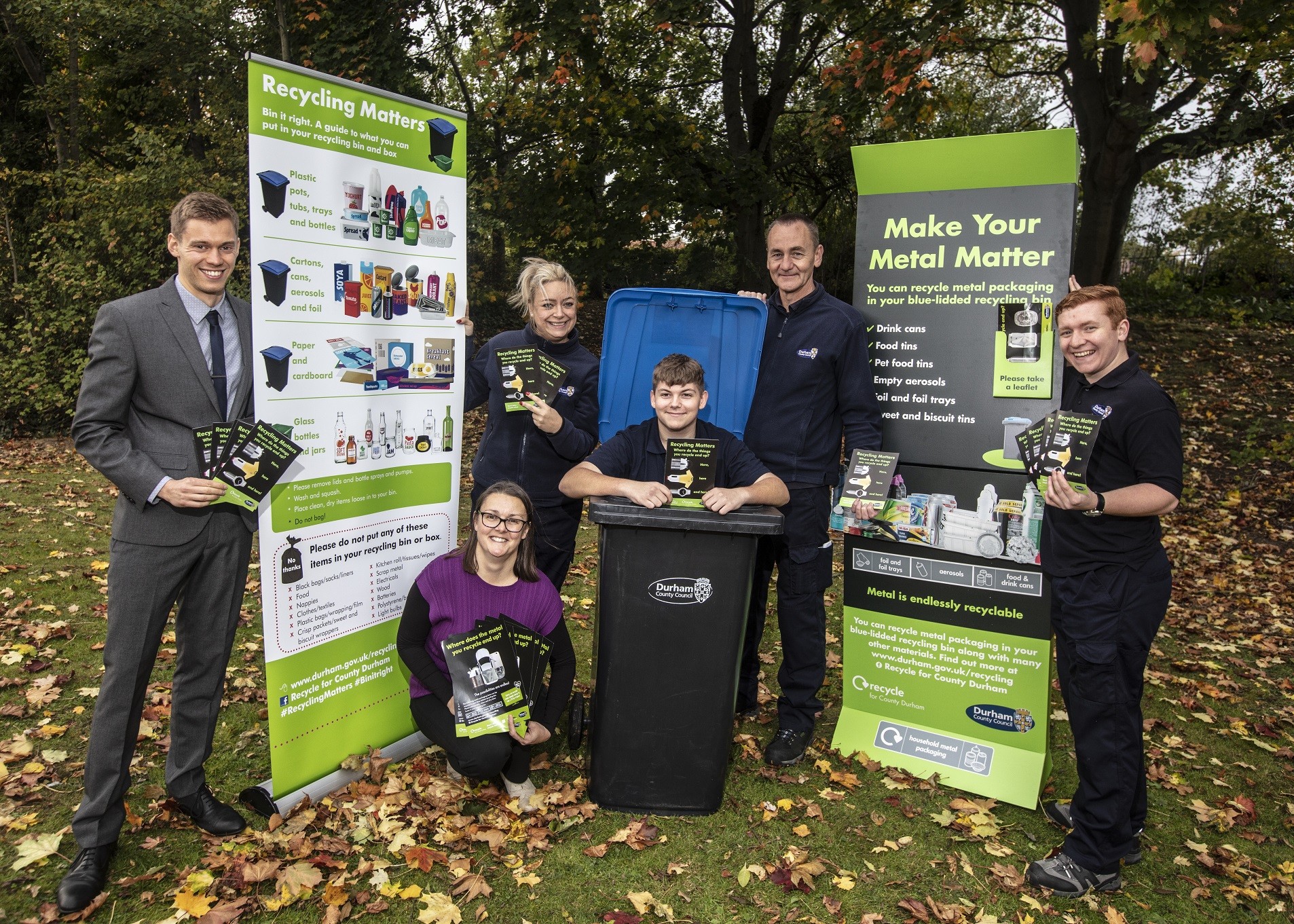Currently less than half of materials able to be recycled are recycled, warns a North East council as it encourages residents to be mindful when placing items in their bins.
As part of its What Goes Where campaign, Durham County Council is asking residents to be aware of what can and cannot be recycled when disposing of household waste.
Cllr Mark Wilkes, Durham County Council’s Cabinet member for neighbourhoods and climate change, said: “Each year, the average household uses about 600 food tins, 380 drink cans, 27 aerosols and 182 foil trays – that’s over 1,000 items per household – but less than half of this is recycled.
“It’s important we recycle as much as we can because, for every item recycled, we reduce the need to use raw materials, helping save energy and resources.”
The council is asking residents to be aware of ‘contaminates’ – items which cannot be recycled and can potentially cause the entire contents of a recycling bin to be rejected and disposed of as waste.
These include items such as used nappies, food, and dog waste, which contaminate other materials in the bin; polystyrene, which is difficult to separate from recyclables; and takeaway pizza boxes, which cannot be recycled due to the grease from food.
Residents are also encouraged not to use black refuse bags in their recycling bins as sorting plants cannot check the contents for recyclables, so they are considered as contamination and disposed of as waste.
Cllr Wilkes added: “It actually costs significantly more to dispose of contaminated waste than it does to process uncontaminated recycling. The more materials recycled, the lower the cost of collecting waste and the more efficient the council can be.
“Recycling also has to be sorted first by hand before going through an automated sorting system, so avoiding contaminates also ensures sorting staff are not coming into contact with materials no one wants to be sorting through, such as used nappies and dog waste.”
A full list of what can and cannot be recycled is available online at www.durham.gov.uk/whatgoeswhere
What Goes in Which Bin?











